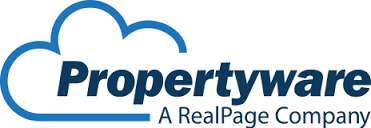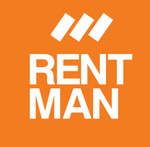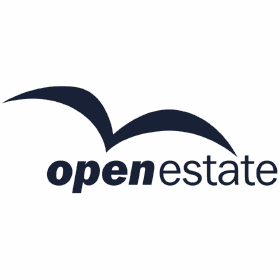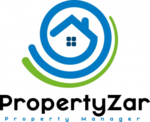Description

ORPM

Propertyware
Comprehensive Overview: ORPM vs Propertyware
ORPM (Online Rental Property Management) and Propertyware are two distinct property management software solutions, each offering a suite of tools designed to streamline operations for property managers.
a) Primary Functions and Target Markets
ORPM (Online Rental Property Management):
-
Primary Functions:
- Tenant & Lease Tracking
- Maintenance Management
- Online Rent Payments
- Financial Reporting
- Communication Tools (e.g., tenant portals)
- Marketing and Application Processing
- Document Storage
-
Target Markets:
- Smaller to mid-sized property management firms
- Individual landlords managing a few properties
- Residential property managers
Propertyware:
-
Primary Functions:
- Comprehensive Tenant Management
- Maintenance Workflow Automation
- Integrated Accounting System
- Marketing Tools for Listings
- Applicant Screening Services
- Owner and Tenant Portals
- Mobile Access
-
Target Markets:
- Medium to large property management companies
- Single-family and low-density property managers
- Investors with larger rental portfolios
b) Market Share and User Base
-
ORPM: Typically garners a smaller segment of the market, catering predominantly to individual landlords and small-scale property managers. Due to its streamlined and straightforward features, it appeals to those looking for cost-effective and easy-to-use solutions.
-
Propertyware: Has a more substantial market presence compared to ORPM, largely owing to its affiliation with RealPage, a leader in the property management software industry. This product is favored by larger entities managing significant portfolios, contributing to a broad user base.
c) Key Differentiating Factors
-
Complexity and Scalability:
- ORPM is designed to be user-friendly and less complex, ideal for smaller operations. Its features are straightforward, allowing users to get started quickly without a steep learning curve.
- Propertyware, on the other hand, offers more robust and scalable solutions suitable for expanding operations. As a result, it provides more customization options and integrative capabilities.
-
Integration and Features:
- ORPM typically provides basic integrations with accounting tools and other essential software.
- Propertyware integrates deeply with RealPage's ecosystem and other third-party services, offering advanced features like detailed analytics and comprehensive reporting.
-
Pricing Structure:
- ORPM tends to offer competitive pricing for budget-conscious users with smaller portfolios.
- Propertyware often has a tiered pricing model that reflects its advanced feature set, making it more cost-effective for managers of larger portfolios seeking a comprehensive solution.
-
Support and Community:
- ORPM might have limited support resources compared to larger competitors, often providing essential helpdesk support.
- Propertyware benefits from RealPage’s extensive support infrastructure, including training programs, community forums, and dedicated account management.
In conclusion, while ORPM may suit smaller operations seeking simplicity and affordability, Propertyware is better positioned for larger-scale property managers or those requiring comprehensive tools and integrations to manage complex portfolios efficiently. The choice between these applications largely depends on organizational size, budget, and specific functional requirements.
Contact Info

Year founded :
2019
Not Available
Not Available
France
http://www.linkedin.com/company/orpm

Year founded :
Not Available
Not Available
Not Available
United States
Not Available
Feature Similarity Breakdown: ORPM, Propertyware
As of my last update, I don't have direct access to proprietary data or side-by-side feature comparisons for specific software products. However, I can provide a general overview based on the typical features of property management software like ORPM (Online Rental Property Manager) and Propertyware. You should check the latest information from the respective companies for the most accurate and current feature sets if you are evaluating these products.
a) Core Features in Common
Both ORPM and Propertyware, as property management solutions, likely share a number of core features typical for such products:
-
Tenant and Lease Tracking: Both platforms probably feature tools to manage tenant information, lease agreements, and track lease expirations.
-
Rent Collection: They usually offer features for electronic rent collection, potentially including automatic reminders and processing capabilities.
-
Maintenance Management: Allow for tracking and managing maintenance requests from tenants, often including vendor coordination.
-
Accounting and Financial Reporting: Both likely integrate basic accounting functionalities, including tracking income and expenses and generating financial reports.
-
Marketing Vacancies: They might include tools for listing vacant properties across various platforms and managing applicant inquiries.
-
Tenant Screening: Both may provide functionalities for conducting background checks and screenings on potential tenants.
b) User Interface Comparison
I don't have visuals or direct access to the latest interfaces of these software products. However, here are some general points to consider when comparing user interfaces:
-
User-Friendliness: Both platforms likely strive to provide an intuitive interface to minimize the learning curve.
-
Customization: The extent to which users can customize dashboards and reports can vary. Propertyware may have more extensive customization options due to its enterprise focus.
-
Mobile Access: Consider the quality and functionality of their mobile apps, as efficient mobile access is crucial for on-the-go property managers.
For specific UI comparisons, you would need to refer to user reviews or screenshots available on their websites or third-party platforms.
c) Unique Features
ORPM (Online Rental Property Manager)
- Simplified Solutions: ORPM might lean towards offering a streamlined set of features targeted at smaller property management firms or individual landlords looking for simplicity and cost-effectiveness.
Propertyware
-
Advanced Customization: Propertyware is known for extensive customization options, particularly beneficial for larger property management enterprises needing tailored solutions.
-
Integration Options: Propertyware may offer more robust integrations with third-party platforms, aiding in extending its capabilities through various add-ons.
-
Portfolio Management: It might support larger portfolios with more advanced reporting and analytic tools.
-
Tenant & Owner Portals: Usually includes more advanced tenant and owner portals, highlighting communication and self-service options.
For a precise breakdown, potential customers should contact sales representatives from each company or consult detailed user reviews and product demos. Additionally, visiting the software’s official website and watching product demo videos can provide insights into unique offerings and UI/UX design.
Features

Customer Support
Robust Reporting Tools
User-Friendly Interface
Efficient Workflow Management
Secure Data Handling

Reporting and Analytics
Communication Tools
Tenant Management
Maintenance Management
Financial Tracking
Best Fit Use Cases: ORPM, Propertyware
When evaluating ORPM (Online Rental Property Management) and Propertyware, it's essential to consider the specific needs and characteristics of different businesses or projects to determine the best fit for each platform. Both platforms offer property management solutions but cater to distinct use cases and scenarios.
ORPM
a) Best Fit Use Cases:
-
Small to Medium-Sized Property Management Companies: ORPM is often favored by smaller property management companies due to its simplicity, cost-effectiveness, and focus on essential features. It is ideal for businesses managing residential rental properties, such as apartments or single-family homes.
-
Independent Landlords: Individual landlords with a limited number of properties can benefit from ORPM's ease of use and straightforward feature set, enabling them to manage their rental units without the complexity of larger, enterprise-level solutions.
-
Startups or Businesses Looking for Cost-Effective Solutions: ORPM can be a good choice for startups or new property management businesses that need a budget-friendly tool to manage their properties effectively without additional overhead costs.
d) Catering to Different Industry Verticals or Company Sizes:
-
Residential Rentals: ORPM is tailored for residential property management, providing tools that are particularly suited for landlords and small management firms focused on apartments, single-family homes, and similar rental properties.
-
Smaller Scale Operations: With its user-friendly interface and essential features, ORPM is suitable for smaller operations that do not require the extensive features or scalability that larger firms might need.
Propertyware
b) Preferred Scenarios:
-
Large Property Management Firms: Propertyware is designed with scalability in mind, making it the preferred option for larger property management companies that oversee a significant portfolio of rental properties, whether residential or mixed-use.
-
Management of Diverse Property Types: Firms that manage a variety of property types, including single-family homes, multi-family units, and community associations, will find Propertyware's comprehensive feature set beneficial.
-
Companies Requiring Advanced Features: Organizations that need advanced accounting, reporting capabilities, and integration options with other business tools can take advantage of Propertyware’s robust functionalities.
d) Catering to Different Industry Verticals or Company Sizes:
-
Enterprise-Level Operations: Propertyware is well-suited for large enterprises managing extensive property portfolios, providing scalability and advanced features to support multiple users and properties.
-
Mixed-Use or Diverse Property Management: Its ability to handle various property types makes it adaptable for companies that deal with mixed-use developments or need a versatile platform for different kinds of real estate assets.
In summary, the choice between ORPM and Propertyware should be guided by the size and complexity of one's property management needs. ORPM is a great fit for smaller, cost-conscious businesses or individual landlords, while Propertyware caters to larger enterprises with a need for scalability and a broader range of management tools.
Pricing

Pricing Not Available

Pricing Not Available
Metrics History
Metrics History
Comparing teamSize across companies
Conclusion & Final Verdict: ORPM vs Propertyware
To provide a comprehensive conclusion and final verdict for ORPM and Propertyware, it's essential to evaluate each product's features, pricing, usability, customer support, and overall value. Here's a concise analysis:
Overall Value
Best Overall Value: Determining the best overall value between ORPM and Propertyware depends significantly on your specific needs and the scale of your property management operations. If cost-effectiveness combined with robust features tailored to specific property types is crucial, ORPM might edge out. However, for broader, more scalable solutions with extensive integration capabilities, Propertyware could offer better value, especially for larger portfolios.
Pros and Cons
ORPM:
Pros:
- User-Friendly Interface: ORPM typically offers an intuitive interface that might be easier for smaller teams to navigate.
- Cost-Effective: Often more budget-friendly, particularly suitable for small to mid-sized property management.
- Specialized Features: May include niche features that are optimized for specific types of properties (e.g., residential or commercial).
Cons:
- Scalability Limitations: It may not scale as effectively for larger property portfolios.
- Fewer Integrations: Might have limited third-party integrations compared to more established platforms.
- Customer Support: Support services may be less comprehensive or slower due to the smaller size of its operations compared to larger competitors.
Propertyware:
Pros:
- Comprehensive Features: Offers a wide array of features catering to both small and large property management needs.
- Scalability: Highly scalable, making it suitable for expanding businesses with various property types.
- Integration Capabilities: Extensive integrations with third-party applications, enhancing functionality and customization.
- Strong Support and Training: Offers robust customer support and training resources, beneficial for onboarding and troubleshooting.
Cons:
- Higher Cost: Generally more expensive, which might be prohibitive for smaller businesses or those on a tight budget.
- Complexity: The extensive features and customizations can lead to a steeper learning curve.
Recommendations for Users
-
Assess Portfolio Size and Type: If your portfolio is large or expected to grow significantly, Propertyware might be the better choice due to its scalability and comprehensive features. For smaller or specialized portfolios, ORPM could offer a more tailored and cost-effective solution.
-
Budget Considerations: Evaluate the total cost of ownership, including subscription fees, implementation, and possible training costs. ORPM might offer a lower-cost entry point, while Propertyware, though more expensive, could deliver higher long-term ROI through scalability and feature depth.
-
Feature Needs: List your must-have features based on daily operations. If integration with specific third-party apps or advanced reporting is critical, Propertyware might be superior. If simpler, streamlined operations are needed, ORPM could be sufficient.
-
Trial and Support Analysis: Take advantage of demo options from both providers to assess usability and the responsiveness of their support teams. This real-world interaction can highlight which platform aligns better with your operational workflow.
Ultimately, the choice between ORPM and Propertyware hinges on balancing the immediate needs and future growth expectations of your property management enterprise.
Add to compare
Add similar companies



